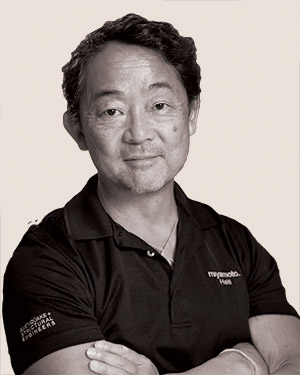
Kit Miyamoto’s effort as global CEO and humanitarian coordinator of engineering and disaster management company Miyamoto International and president of the non-profit organization Miyamoto Global Disaster Relief isn’t just work, it’s personal. “I don’t see it as a job,” he says. “It’s my passion, there’s no doubt about it.”
Miyamoto’s company has made a significant impact in countries around the world most ravaged by war and conflict, as well as by earthquakes and other natural disasters. He looks to take his teams to places where there is a significant need, he says. Sometimes these locations are places no one else wants to go. “A lot of people don’t show up,” he says. “We definitely know how to work very effectively in extremely difficult conditions.”
With escalating conflicts around the world, particularly in Ukraine and the Middle East, along with devastating earthquakes and other natural disasters in Turkey, Morocco, Libya and elsewhere, 2023 was a busy year for the company and Miyamoto’s non-profit in Sacramento, California. The engineer came to America from his native Japan with aspirations of playing professional soccer. When a knee injury ended that dream, he changed his focus to earn a degree in civil engineering at California State University, Chico. Miyamoto also earned a PhD in structural engineering from the Tokyo Institute of Technology.
After the series of earthquakes that flattened cities in Turkey’s Hatay province in February, the company, which had already had a presence in the country since 2008, joined forces with Turkish firm Protek-Yapi to form Miyamoto-Protek. The joint venture continues to assess damaged structures and rebuild homes that can be recovered to get most people resettled and communities on track for rapid recovery.
In Afghanistan, Miyamoto highlighted the need for humanitarian aid, also helping international aid groups understand local traditions and customs to avoid inadvertent prejudice against women. In Ukraine, he led his company to repair some 7,000 homes and schools that were damaged in the war with Russia. “We went from zero to 120 people” on the team working there, he says.
Miyamoto stresses that he is not interested in just coming to a country to do damage assessments and then moving on. Miyamoto Global Disaster Relief has been in Haiti for years, he says, and is currently rebuilding schools there. Similar efforts are underway in Puerto Rico.
Miyamoto typically forms partnerships with locals and trains them on how to build seismically sound structures. At the COP28 global climate change conference in December, he pledged to create an informal coalition to understand the potential of both indigenous practices and technological advances to increase resilience in countries most affected by the climate crisis.
Mark Zweig, president and founder of industry consultancy Zweig White and one of Miyamoto’s early mentors, describes him as “absolutely fearless,” willing to go to dangerous and risky places.
The company’s goal is to make the world a better place, Zweig says, and Miyamoto takes that mission very seriously. “He loves the people. When he goes to a country, the first thing he does is try to mix with the locals and find out what the culture is.”

